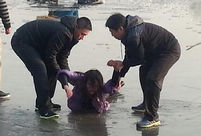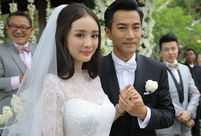BEIJING, Jan. 15 -- Japanese Prime Minister Shinzo Abe has denied previous cabinets' statements about history by actions, a spokesman of the Chinese Foreign Ministry said on Wednesday.
"Abe's visit to the Yasukuni Shrine is a political and diplomatic act. He has denied the spirit of the Kono and Murayama statements," Hong Lei told a regular press briefing.
The Kono Statement, issued by Japan's former chief Cabinet secretary Yohei Kono in 1993, acknowledged that the Japanese military and authorities forced Asian women into sex slavery during WWII, and pledged not to repeat historical mistakes.
The Murayama Danwa, issued by then Prime Minister Tomiichi Murayama in 1995, is regarded as a broader apology for Japan's war crimes.
In a bid to defend Abe's latest visit to Yasukuni, Japanese Foreign Minister Fumio Kishida said Tuesday that it was neither a political nor diplomatic event and the current cabinet has never denied the Kono and Murayama statements.
Yasukuni is broadly seen as a symbol of Japanese militarism, with 14 convicted Japanese class-A WWII criminals enshrined there.
The Japanese government deliberately redacts military aggression from its history, neglects the hurts brought by Abe's acts to sentiments of the people in victim countries, and uses the Kono and Murayama statements as mere shields," Hong said.
"The Japanese side is saying one thing while doing the opposite, such a deceptive ploy will never fool the international community," he said.
Hong urged Japan to take a serious attitude, acknowledge its mistakes, change its track and regain the trust of its neighbors and the international community through substantial acts.
 In photos: Ten 'tuhao' devices in 2013
In photos: Ten 'tuhao' devices in 2013 College students saved from an ice hole by brave citizens
College students saved from an ice hole by brave citizens Gallery: Top 10 box office hits in 2013
Gallery: Top 10 box office hits in 2013 Beautiful churches around the world
Beautiful churches around the world Yang Mi, Hawick Lau hold wedding in Bali
Yang Mi, Hawick Lau hold wedding in Bali 'Phubbing' people seen everywhere
'Phubbing' people seen everywhere World's biggest snack shop in China
World's biggest snack shop in China Shocking moments when PLA's weapons open fire
Shocking moments when PLA's weapons open fire World's fastest train CRH380A assembled in E China
World's fastest train CRH380A assembled in E China Chinese naval escort taskforce repels 4 suspicious vessels
Chinese naval escort taskforce repels 4 suspicious vessels Should highways charge tolls on New Year's Eve?
Should highways charge tolls on New Year's Eve? Foreign banks optimistic about China's growth prospect
Foreign banks optimistic about China's growth prospect  Li Na crashes Belinda Bencic in 2nd round at Australian Open
Li Na crashes Belinda Bencic in 2nd round at Australian Open New top ten sceneries of Qiandao Lake
New top ten sceneries of Qiandao Lake World's weekly photos (1.6-1.12)
World's weekly photos (1.6-1.12)Day|Week|Month